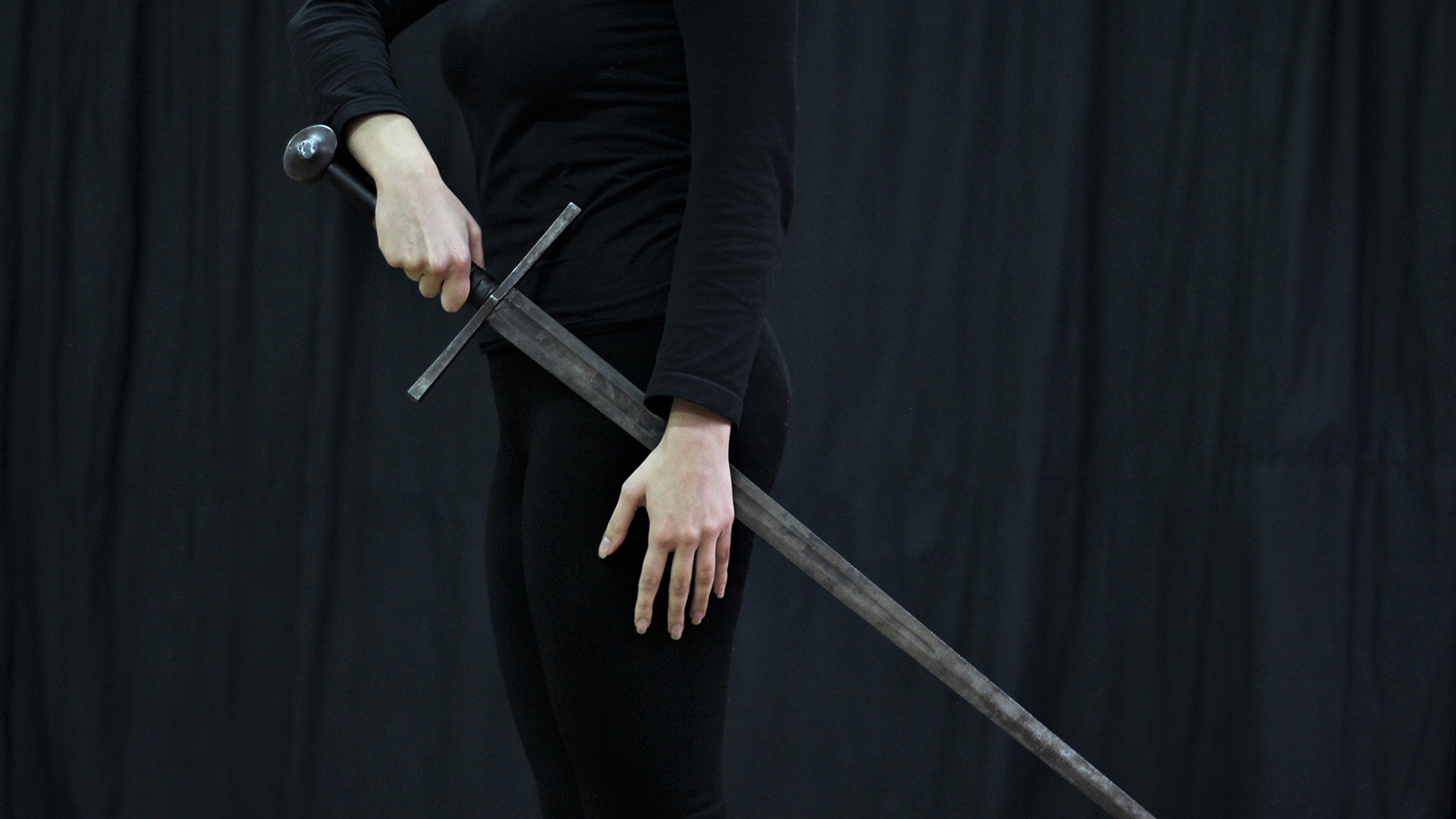Stage combat and theatrical fencing
Workshop conducted by Master Nicola De Matteo

Combining theatrical conventions with the sports element is an ancient idea, adopted in the best theatrical schools and academies between the nineteenth and twentieth centuries. Fencing for an actor is important not only in the event that he finds himself dueling on stage, but equally for the idea of posture that this art teaches; for the conception of the scene as a physical, emotional inner duel; for mastering timing, words and attitude as well as sword handling.
For a fencer, as for a dancer and an actor, the knowledge of time, measure and space is essential. A line delivered out of time, as well as an “uscita in tempo” (fencing technique) performed with wrong timing, will never affect the public as it should. The fencer on stage always starts from an apparent mental emptiness, which turns into action and reaction, speed and pauses, dialogue, attitude, rhythm...and dance. Knowing the art of fencing enriches the technical, physical and psychic skills of every performer.
During the workshop you will learn about historical treatises, fencing, disarm, falls, hand-to-hand combat and methods to guard break (timed exits). The course aims at developing these skills through the study and realization of a fencing dialogue useful for actors, singers, dancers, choreographers, pedagogists, musicians, directors and teachers of scenic arts. Theater is physical, moral and psychological fencing.
Program:
- • Warm-up
- • Training under pressure to enhance reaction skills
- • How to handle the sword (Capoferro, 1610)
- • Rapier (Spanish and Italian school)
- • Longsword and Bastard sword (Fiore de liberi, 1409)
- • Second armed hand: buckler, dagger, cape (I.33, 1300; Marozzo 1568)
- • Falls, pads, joint levers, how to kick and punch
- • Conventional and limb sacrifice disarm
- • Fight choreography
Length: 3 days minimum for a total of 12 hours of work.
Number of students: from a minimum of 8 to a maximum of 22.